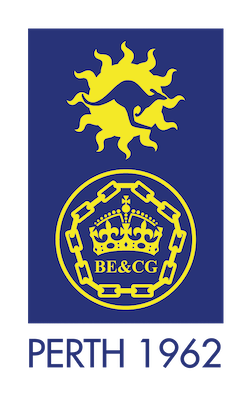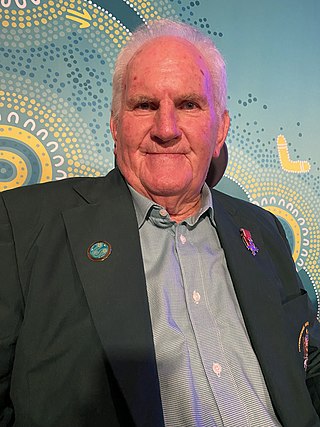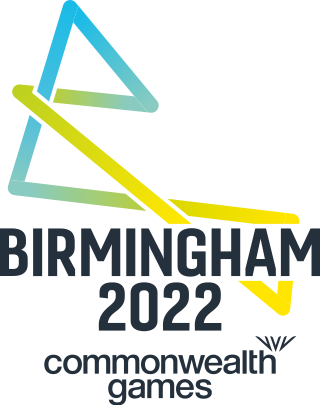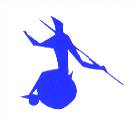
The Commonwealth Games is a quadrennial international multi-sport event among athletes from the Commonwealth of Nations, which consists mostly, but not exclusively, of territories of the former British Empire. The event was first held in 1930 as the British Empire Games and, with the exception of 1942 and 1946, has successively run every four years since. The event was called the British Empire Games from 1930 to 1950, the British Empire and Commonwealth Games from 1954 to 1966, and the British Commonwealth Games from 1970 to 1974. The event removed the word British from its title for the 1978 Games and has maintained its current name ever since.

The 1962 British Empire and Commonwealth Games were held in Perth, Western Australia, from 22 November to 1 December 1962. Athletic events were held at Perry Lakes Stadium in the suburb of Floreat and swimming events at Beatty Park in North Perth. It was held after the 1962 Commonwealth Paraplegic Games for wheelchair athletes.
The 1966 British Empire and Commonwealth Games were held in Kingston, Jamaica, from 4 to 13 August 1966. This was the first time that the Games had been held outside the so-called White Dominions. The event was followed by the 1966 Commonwealth Paraplegic Games for wheelchair athletes. Jamaica remains the only host nation of a Commonwealth Games that did not win at least one gold medal in its own games.

The 1970 British Commonwealth Games were held in Edinburgh, Scotland, from 16 to 25 July 1970. This was the first time the name British Commonwealth Games was adopted, the first time metric units rather than imperial units were used in all events, and also the first time the event was held in Scotland. Also, the event saw the first unique Games trademark logo: an emblem showing the Games emblem intertwined with a St Andrews Cross and a thistle. The event was followed by the 1970 Commonwealth Paraplegic Games for wheelchair athletes.

The 1986 Commonwealth Games were held in Edinburgh, Scotland, between 24 July and 2 August 1986. This was the second Commonwealth Games to be held in Edinburgh. This event served as a qualifying event for the 1988 Summer Olympics in Seoul for the events that was contested at the Olympic Games. Thirty two of the eligible fifty nine countries boycotted the event because of the Thatcher government's policy of keeping Britain's sporting links with apartheid South Africa.

Scotland is one of only six countries to have competed in every Commonwealth Games since the first Empire Games in 1930. The others are Australia, Canada, England, New Zealand and Wales. The Commonwealth Games is the only major multi-sport event in which Scottish athletes and teams compete as Scotland; otherwise Scotland participates in multi-sport events as part of a Great Britain team.

Meadowbank Stadium is a multi-purpose sports facility located in the Meadowbank area of Edinburgh, Scotland. Built on the site of the earlier New Meadowbank and Old Meadowbank sports venues, it was originally built to host the 1970 Commonwealth Games. It also hosted the Games in 1986, becoming the first venue to host the Games twice. It is the current home of Scottish League Two side Edinburgh City.
The archery events at the 1982 Commonwealth Games in Brisbane were held from 2 October to 5 October 1982 at the Murarrie Recreation Reserve. There were two events, one for men and one for women, both using recurve bows. The final standings were decided by an aggregate score after four days of shooting. The women's champion, New Zealand's Neroli Fairhall, became the first paraplegic athlete to win a Commonwealth gold medal.

At the 1970 British Commonwealth Games, the athletics events were held at the Meadowbank Stadium in Edinburgh, Scotland. A total of 36 events were contested, of which 23 by male and 13 by female athletes. This was the first athletics competition at the British Commonwealth Games to feature events in metric units, rather than imperial units. One world record and two Games records were broken at the competition.

Daphne Jean Hilton was an Australian Paralympic competitor. She was the first Australian woman to compete at the Paralympic Games. She won fourteen medals in three Paralympics in archery, athletics, fencing, swimming, and table tennis from 1960 to 1968.

Gary Leslie Hooper, MBE is an Australian Paralympic competitor. He won seven medals at three Paralympics from 1960 to 1968.
Lorraine McCoulough-Fry was an Australian Paralympic swimmer, athlete and table tennis player.

The 2022 Commonwealth Games, officially known as the XXII Commonwealth Games and commonly known as Birmingham 2022, were an international multi-sport event for members of the Commonwealth of Nations that took place in Birmingham, England between 28 July and 8 August 2022. They were the 22nd edition of the Commonwealth Games. It was the third and seventh time England and the United Kingdom hosted the Commonwealth Games, respectively.

New Zealand sent a 12 sportspeople strong delegation to the 1976 Olympiad for the Physically Disabled in Toronto, Ontario, Canada. At these Games, New Zealand won 13 medals at the 1976 Summer Paralympics: 7 golds, 1 silver, and 5 bronze medals. Eve Rimmer was the most decorated Paralympian at these Games, winning 5 gold medals in athletics.

The Commonwealth Paraplegic Games were an international, multi-sport event involving athletes with a disability from the Commonwealth countries. The event was sometimes referred to as the Paraplegic Empire Games and British Commonwealth Paraplegic Games. Athletes were generally those with spinal injuries or polio. The Games were an important milestone in the Paralympic sports movement as they began the decline of the Stoke Mandeville Games' dominating influence. The event was first held in 1962 and disestablished in 1974. The Games were held in the country hosting the Commonwealth Games for able-bodied athletes, a tradition eventually fully adopted by the larger Olympic and Paralympic movements.

Raymond Barrett was an Indigenous Australian Paralympic athlete left a paraplegic following a car accident. Prior to this he was a champion juvenile athlete in able-bodied sports. A bronze medalist at the 1972 Summer Paralympics Heidelberg Germany, a high achiever at the Stoke Mandeville Games England, Commonwealth Paraplegic Games, National Paraplegic and Quadriplegic Games, FESPIC Games and State selection trials. A sporting complex in the Sutherland Shire of Sydney is named in his honor. The people of this Shire were his 'significant others'.

Anthony Eric "Tony" South OAM AM is an Australian Paralympic archer who won a gold medal and two silver medals at the 1968 Summer Paralympics and a bronze medal at the 1972 Summer Paralympics.

The second Commonwealth Paraplegic Games were held in Kingston, Jamaica from 14 to 20 August 1966. There were 133 athletes from 10 countries. The Games were opened by Prince Philip.

The fourth Commonwealth Paraplegic Games were held in Dunedin, New Zealand from 13 to 19 January 1974. The Games were opened by Sir Denis Blundell, Governor-General of New Zealand.
Victor Salvemini was an Australian Paralympic athlete from Western Australia. As a wheelchair athlete, he competed in several sports including archery, basketball and track sprinting in the 1970s. A paraplegic, he lost the use of both his legs after a car accident in Fremantle, Western Australia in 1961 when he was 14 years old.
















